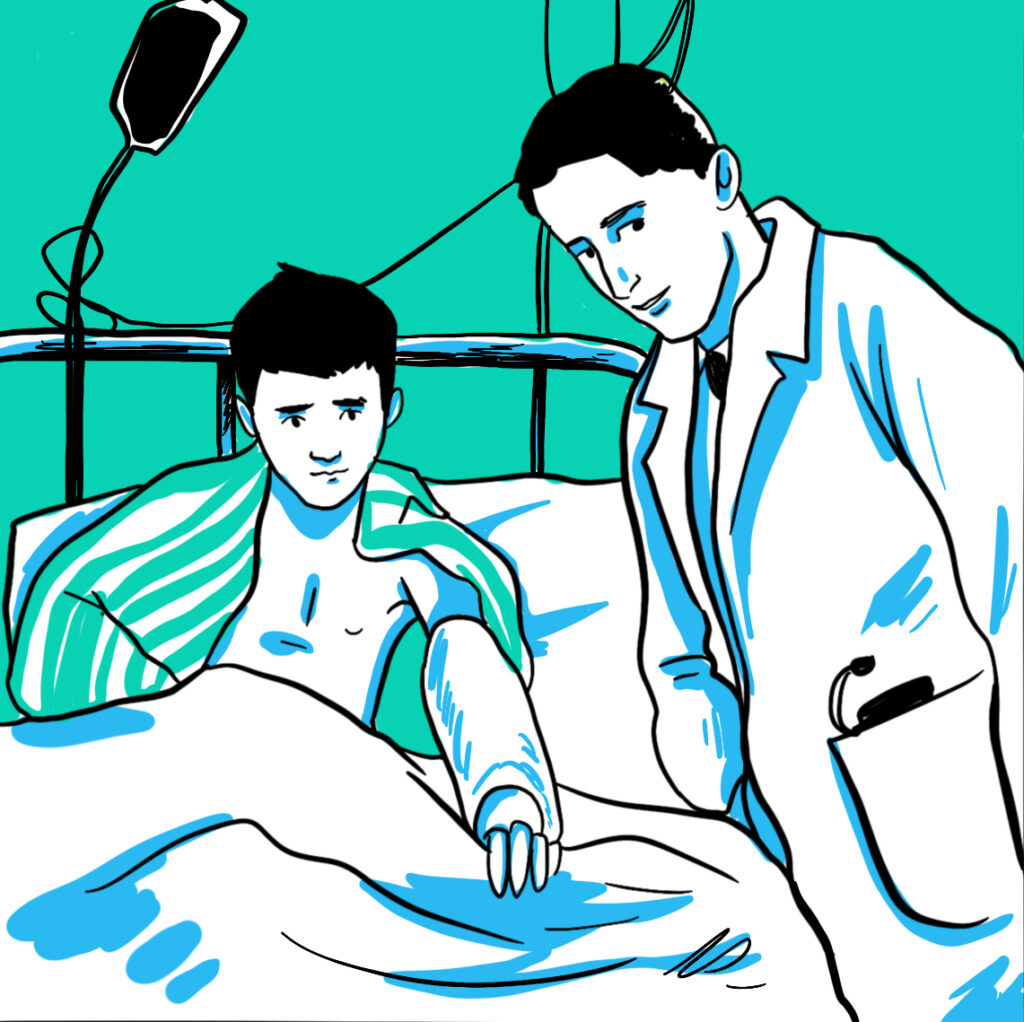Nurse-led haemophilia care delivered in Glasgow
For the 10 days covering the WFH NMO training, congress and general assembly, a total of 122 patients from 58 countries made around 370 visits to the treatment room where their care was managed by highly experienced professionals practicing advanced nursing knowledge and skills.
Once registered, each patient was assessed by an experienced nurse prescriber, who gave advice and, where appropriate, prescribed treatment with factor for administration by non-prescribing nurses or by the patients themselves. In some cases, they referred the patient for physiotherapy. On the few occasions a doctor was needed, one was called.
At some stage we’ll fully examine the database ably maintained by Edinburgh data manager Barry Hewitt and will prepare a detailed paper on the whole experience. For now though, a few reflections on the experience.
Despite coming from very different centres, everyone pulled together and collaborated magnificently as a team. As Sue Hook from Edinburgh noted: “I’ve known most people here for a long time, and we all meet at conferences and so on, but we’ve never worked together. It’s been amazing to see how, despite the fact that we all work very differently, we all just got on with it. Everybody helped everybody else. This has brought us all much closer together.”
The Haemnet trustees – Kate Khair, Debra Pollard, Cathy Harrison and Sue Hook – began planning the logistical aspects of the treatment room over a year ago. We were able to call on support from Chris Harrington (who doggedly pursued the Royal College of Nursing, as a result of which every professional who practiced did so with full indemnity cover) Stephen Bassey, consultant transfusion scientist in Truro (without whom we might not have had any factor!) and CitySprint (who helped with transport). We brought in Dawn Prideaux de Lacy and Liz Rizzuto to act as front desk Fuhrers and manage the chaos in breaks (and rebook flights when unfortunate circumstances meant some nurses had to return to London early).
From day 1 at the NMO training, Debra (“25 years in haemophilia and this is the best thing I’ve ever done”) and Kate (what a swansong to her nursing career!) began making new friends from around the world, albeit often with the help of Google Translate. Debra noted: “Even without English language, people are able to advocate for themselves, and what I discovered is that even not speaking Tajikistani or whatever, I am able to communicate with the patient adequately enough to be able to assess their needs.”
After a few days they were joined by Cathy, Caryl Lockley, June Ward and Anne Wareing, and the rest of the HNA “superstars” at the main congress (pictured above). They donned aprons and treated patients, with many doing multiple shifts way beyond the initial rota either because we were really busy or because they couldn’t stay away. (Special thanks to Laura Tamulevicius, who with Kate was the last nurse to leave the building!) None of them knew what to expect when they volunteered, but all loved the experience. For many, it allowed them to see the value of the care they are able to provide in the UK in a broader context. “It’s given me a kick up the backside to go back and do more nurse assessment of care,” said one.
Physio support through the congress days was led by Anna Wells and her excellent team. The service they provided was very much appreciated by patients. For Debra Pollard, the arrival of the physios “was a great boost because I was able to say ‘no, I’m going to hand you to the physiotherapist to give you some support for your painful joint.’” Another noted that: “The patients that are very disabled, obviously we are treating them with factor, but they are keen to get physiotherapy and ice packs, and a lot of the things we don’t think about every day.”
But what did the patients think of the service they received? We designed a feedback form inviting people to rate the service on a “thumbs up” scale, but soon abandoned it. We were getting five thumbs even from those sent away for not needing treatment. Even Mr Putin might be a tad embarrassed by a 100% approval rating.
Too often it feels like some in the haemophilia world are a bit suspicious of Haemnet, and not sure of what we are about (see last week’s blog). With so many committees already in this specialty, we aim to provide the support, facilitation and (sometimes) counselling required to help non-medical members of the MDT team reach their full potential, through educational and service improvement initiatives like the Contemporary Care course, the ASPIRE programme, and Haemnet Horizons. The experience in Glasgow suggests that we are getting there.
Final word goes to the nurse who said: “This has been my favourite bit of the conference.”


